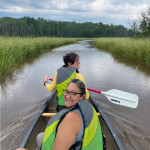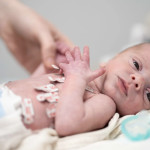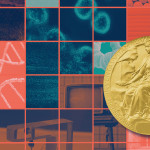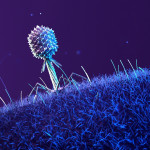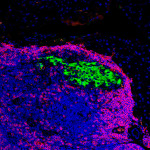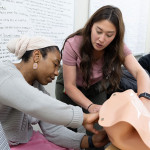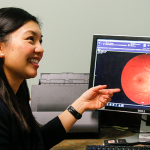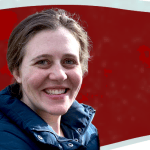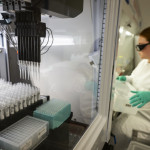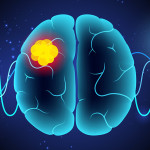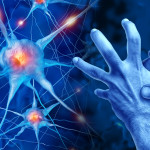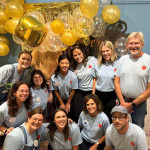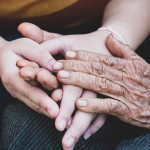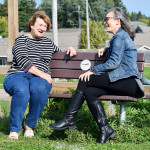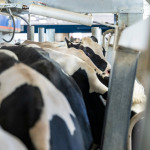Category Health & Wellness
Indigenous-led research examines the health of restored manoomin in northern Wisconsin
Wild rice beds are returning to the St. Louis River Estuary thanks to restoration efforts. Ojibwe partners and UW researchers are now looking to determine whether contaminants affect the health of restored manoomin — and those who eat it.
From the lab to the NICU: UW researchers pioneer contactless health monitoring
The system could pave the way for safer, more comfortable patient care in settings ranging from neonatal units to in-home recovery.
How to win a Nobel Prize
Meet the UW–Madison faculty and alumni whose discoveries changed the world.
Microbes mutated in space hint at biomedical benefits to humans on Earth
Researchers are interested in studying effects on the gut microbiome and antibiotic-resistant infections.
The gift of gratitude
UW research scientist and meditation teacher Cortland Dahl explains what's so great about gratitude, no matter the time of year.
Train for the job you want
Outside the classroom, medical students in the School of Medicine and Public Health seize opportunities to gain knowledge and serve.
With milk testing and new tools, UW scientists are helping prevent bird flu outbreaks in Wisconsin and beyond
The Wisconsin Veterinary Diagnostic Laboratory processes samples from every dairy farm in the state to help prevent an H5N1 outbreak among cattle.
Breathing new life into rural respiratory care
Graduate student Sara Hernandez pilots a pharmacist-led program to improve COPD care and outcomes in rural Wisconsin.
A UW–Madison professor is looking for ways to boost trust in science and public health. Cuts to federal funding are making that work even harder.
UW–Madison professor Michael Xenos and his colleagues are working to ensure vital information is clearly and effectively communicated to people who might not have the most confidence in public health information.
A Decade of Discovery: ORCHARDS Concludes After Ten Years of Groundbreaking Research
After 10 years, the Oregon Child Absenteeism Due to Respiratory Disease Study has concluded. UW researchers involved with the study reflect on its impact as one of the most comprehensive and long-running community-based studies of respiratory illness in school-aged children in the US.
New research reveals longevity gains slowing, life expectancy of 100 unlikely
A new study finds that life expectancy gains made by high-income countries in the first half of the 20th century have slowed significantly.
Scott announces final year as dean
School of Nursing Dean Linda D. Scott will step down from the position in June 2026 and will remain a member of the faculty. That will be the end of her 10th year, which she says is the right time to conclude her tenure.
Bridging the Gap
The UW School of Nursing’s Center for Aging Research and Education (CARE) provides essential support to the growing population of older adults in Wisconsin by educating the next generation of caregivers and engaging with communities to support healthy aging in place.
Research project aims to measure brain fog as long-term effect of COVID-19
The findings of the study could inform the development of more targeted therapies to combat the effects of brain fog, which include memory loss, attention deficits and fatigue, that can make it hard to complete the tasks of daily life.

